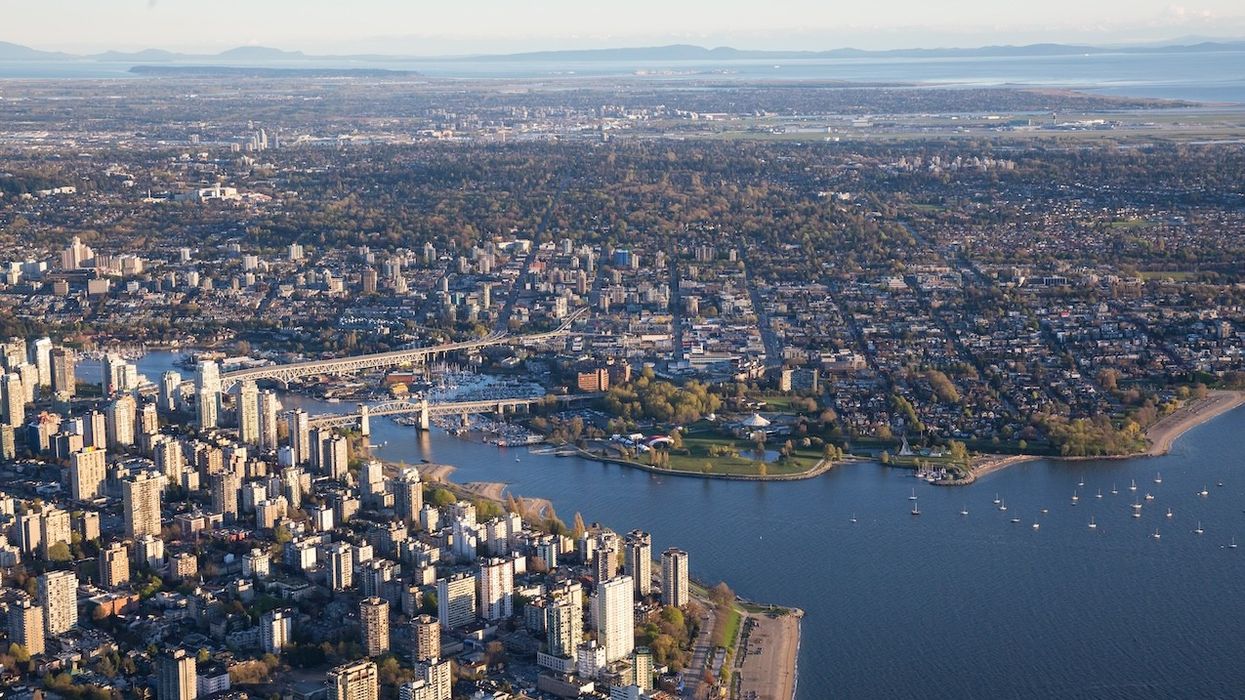This article was submitted by OVIS Group's Sébastien Leboeuf, CEO, and Jacky Chan, President.
The challenges in British Columbia's housing sector are underscored by alarming statistics, further emphasizing the urgency of addressing the ongoing crisis. In November, housing starts within the province witnessed a significant decline, with an overall drop of 22% across Canada. Vancouver, in particular, experienced a staggering 39% decrease in housing starts during the same period.
These figures not only reflect a statistical downturn, but also translate into real-world difficulties for individuals and families grappling with the daily struggle to secure a place to call home. The prevailing issues of soaring prices and limited affordable housing options have elevated shelter, a fundamental human need, to the status of a luxury. Reports, such as the one recently released by CMHC, consistently highlight the severity of the problem, emphasizing the imperative for comprehensive solutions. According to CMHC's findings, an additional 3.5 million affordable housing units are required by 2030 to restore affordability nationwide. This stark metric serves as a reminder of the need for proactive measures and collaborative efforts to effectively address the housing crisis and ensure that everyone has access to suitable housing.
The housing crisis in British Columbia is far from uniform, presenting diverse challenges in different communities. Notably, Greater Victoria, Langford, and Vancouver are grappling with distinct issues that demand tailored solutions. For instance, Greater Victoria and Langford are facing unique challenges that require tailored solutions. Langford, recognized as the most livable place in Canada, is contending with rapid population growth, welcoming an influx of 2,000 people annually. Mayor Scott Goodmanson's commitment to densify Langford's city center is a positive step forward, but it also underscores the pressing need for a comprehensive strategy to effectively address the escalating demand for housing.
While Langford's growth is a testament to its appeal, it requires careful planning to ensure that affordability and quality of life are not compromised. As Langford's population jumped 31.8% to 46,584 in the five-year span, it solidifies its position as the fastest-growing municipality in British Columbia and the third fastest-growing in Canada behind two communities in Ontario.
CMHC's commitment to addressing Canada's housing supply shortage is a beacon of hope. The recent increase in federal national funding from $40B to $60B annually for programs targeting housing affordability is a significant step toward meeting the growing demand for homes. The CMHC MLI Select Program, focusing on affordability, accessibility, and climate compatibility, adds a crucial dimension to the efforts to create sustainable and inclusive housing solutions. Furthermore, recent policy changes, such as the exemption of GST for all rental developments since September 15, signify a proactive approach to encourage affordable housing initiatives. These policy adjustments create a more conducive environment for developers to contribute to the supply of affordable rental housing.
With over 30 years in the industry, I can recognize the importance of collaboration in finding lasting solutions to the housing affordability crisis. I commend the efforts of CMHC and CMLS and we are committed to being an active participant in collective initiatives that aim to transform BC's housing landscape.
In alignment with our commitment to sustainable development, we recognize the importance of addressing the housing crisis on multiple fronts. This involves exploring innovative construction methods, embracing eco-friendly technologies, and actively engaging with local communities to understand their unique needs.
Addressing British Columbia's housing affordability crisis is a complex task that requires a collaborative and thorough approach. Recognizing the significance of active private sector involvement, organizations like CMHC and CMLS play a crucial role in tackling the underlying issues and working towards long-term solutions. As one example, our latest project, OVIS ONE in Langford, participates in the CMHC's MLI Select Program and meets progressive environmental and affordability requirements not only because it aligns with national efforts, but because we believe in the importance of addressing environmental concerns while providing accessible housing options. In our commitment to prioritize affordability, accessibility, and climate compatibility, we've designated 10% of OVIS ONE homes as non-market, attainable housing. In our design, we chose features aimed at achieving a 27% reduction in energy consumption and greenhouse gas emissions compared to the 2017 National Energy Code for Buildings.
By working together to share this responsibility, we aim to contribute to the transformation of BC's housing landscape, fostering a more inclusive and equitable future.





















